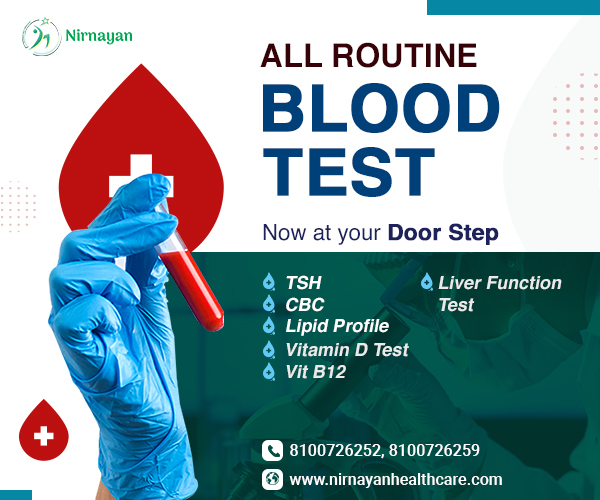There are many types of hepatitis, among them, Hepatitis A Virus can cause various health complications and illnesses. It’s one of the most dangerous contagious viral liver infections, easily spread from person to person through contact with infected persons. It’s a highly infectious and globally relevant virus that commands attention by revealing the symptoms and causes of hepatitis A virus. This type of hepatitis disease can last for months, and it requires a proper treatment process to get a cure.
Sometimes getting emotional about rumours can be harmful if you ignore the signs and symptoms of hepatitis A. Let’s understand how this virus spreads, by something as simple as contaminated water or food can ripple across communities, disrupt lives, and highlight glaring gaps in public health systems.
What is Hepatitis A?
Hepatitis is known as a viral liver infection which affects your liver health with inflammation, and it can turn chronic if you do not treat it in time. HAV is a self-limiting disease, meaning most people recover completely within a few weeks to months without long-term liver damage. Yet, its infectious nature makes it remarkably easy to spread to those around you once you’re infected. Treatment of Hepatitis A should not be delayed for any reason; otherwise, it will develop badly in your liver.
Causes of Hepatitis A & how it spreads:
Hepatitis A virus can affect your liver and last for more than 2 months in your body. It is a contagious and easily spread disease if anyone is in contact with the infected person.
Hepatitis A virus (HAV) spreads mainly through the faecal-oral route. In simple terms, the virus is passed out in the stool of an infected individual and can infect another person when it enters the mouth. Common ways of transmission include:
- Uses of contaminated water & food items
- Inadequate hygiene and poor sanitation practices
- Direct close contact with someone carrying the infection
- Sexual activity, especially oral-anal contact
The virus is extraordinarily resilient—capable of surviving harsh environmental conditions, including acidic environments in the stomach and high temperatures, allowing it to persist in contaminated sources for extended periods.
Symptoms of hepatitis A:
Depending on the individuals and their health conditions, symptoms of hepatitis A may vary from mild to severe. The incubation period of hepatitis A can be within 28 days. The symptoms include,
- Pain in the right side of the abdomen
- Nausea
- Vomiting
- Dark urine
- Fever
- Yellowish skin and eyes (Jaundice)
- Feeling week
- Noticing frequent digestive disorders
- Diarrhoea and many more.
More than in children, in adults, the symptoms of hepatitis A are more noticeable. The severity and the causes of hepatitis A disease grow with age, so that children below 6 years of age who have hepatitis A infection typically remain asymptomatic, and only around 10% of them show the symptoms of jaundice.
In some cases, Hepatitis A can relapse, where an individual who has recently recovered may experience a second episode of acute illness.
Treatment of hepatitis A:
As there are no special options for the treatment of hepatitis A, your medical professionals may ask you to follow some preventive home remedies to combat hepatitis A.
Hepatitis A Vaccination:
- HAV vaccine: Two doses (initial + booster after six months) provide long-term protection.
- Combined Hepatitis A & B vaccine: Available in a three-dose schedule for dual protection. For added convenience, there’s also a combination vaccine available that protects against both Hepatitis A and B. This dual-purpose vaccine is typically delivered in a three-dose schedule spread across six months, offering comprehensive immunisation in a single plan.
Hygiene & Sanitation
- Frequent handwashing with soap and clean water
- Drinking safe, purified water
- Avoiding raw or undercooked shellfish in high-risk areas
- Ensuring proper sewage disposal
Laboratory testing is essential for confirmation:
- Anti-HAV IgM & IgG antibodies – to confirm acute or past infection
- HAV RNA (RT-PCR test) – detects the virus directly in the blood
- Liver Function Tests (LFTs) – to assess the degree of liver inflammation
Nirnayan Pathology Lab provides comprehensive diagnostic services, including these specialised tests, for timely and accurate detection.
How to prevent the risks of HAV:
- Taking rest by staying at home: Try to ignore unnecessary outside roaming and take rest at home for a minimum of 7 to 10 days to reduce the risks of hepatitis A.
- Get enough food & hydration: A balanced diet, along with maintaining proper hydration, can help you recover from hepatitis. Nausea and vomiting can make it difficult to get enough vitamins and minerals, so drink plenty of water (purified water), fruit juice, or milk to maintain your body’s energy and help in the treatment of hepatitis A
- Avoid alcohol consumption: Don’t ever drink alcohol, because limitless or excessive alcohol consumption can cause liver damage, liver cirrhosis, and other liver diseases.
- Restrict sexual contact: If anyone is already having Hepatitis A infection, it’s important to avoid sexual activity to avoid any transmission of the HAV virus.
- Avoid infected people: As hepatitis A is a very contagious disease, try to avoid contact with infected people to avoid its spread among all.
- Contact your health care provider: If you are having hepatitis A, you need regular blood tests, liver screening, and other diagnostic processes to check your liver function. Reach out to your nearest pathology lab and get your tests done with accurate analysis.
Risk factors of Hepatitis A:
Several risk factors are mentioned below for increasing the chances of hepatitis A infection:
- Travelling to the areas where HAV can be commonly found.
- You work in hospitals or any health care sector where you have communication with people infected with hepatitis A (viral liver infection).
- If you have done any sexual activities with a person who already had hepatitis A infection.
- People who have HIV or any other autoimmune disease.
- Living with a hepatitis patient.
A note from Nirnayan Pathology Lab:
Knowing the symptoms & causes of hepatitis A, you don’t need to wait. Early detection and treatment can be done on an emergency basis, so that it may reduce the severity and contamination of this viral liver infection. Nirnayan Pathology Lab provides advanced pathology services for detecting any disease across India. So don’t delay, book your appointment today and get tested.




